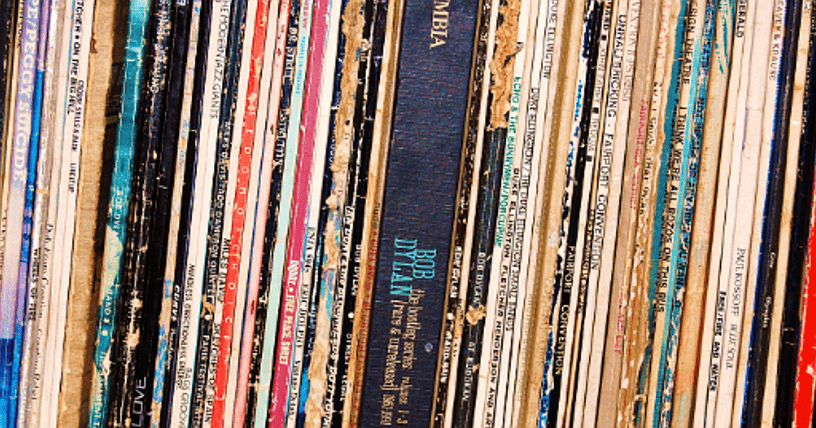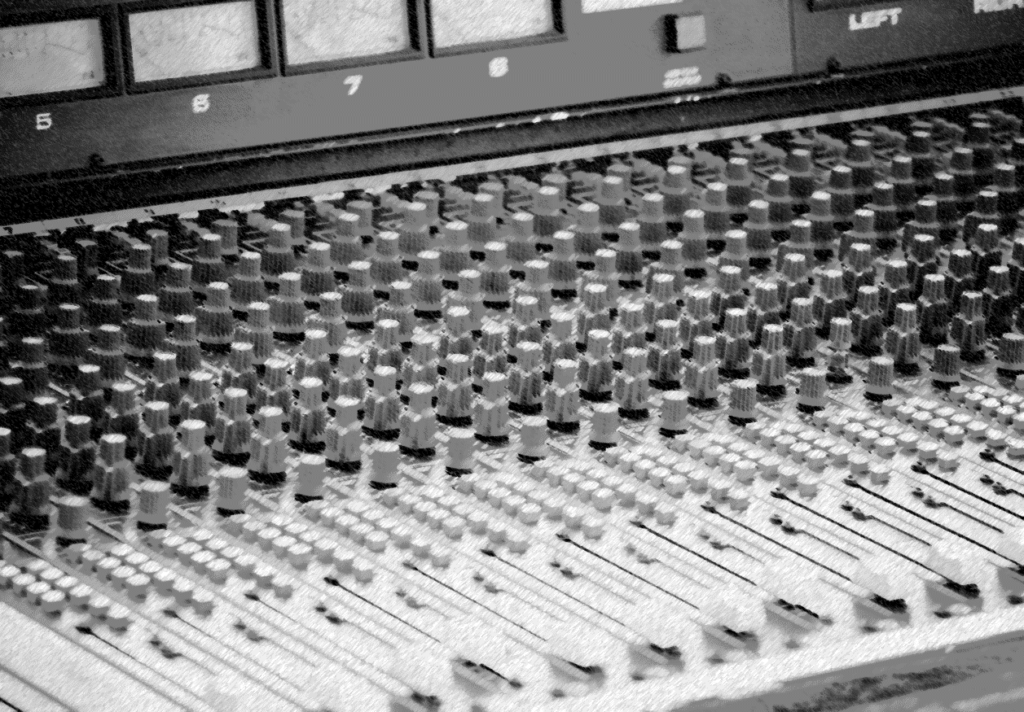
Today’s #TBT headline isn’t just a blog topic or a social media meme – it’s another test that describes who we are. Four years ago – that’s right, just before the pandemic that brought the world to a halt – this blog was asking questions like this one.
And thankfully, things have calmed down to a point where we can ask the question again, or as my friend Mark Sterling used to ask me at the end of our long distance calls back in the 80’s or 90’s:
“So, what’s on your turntable right now?”
It wasn’t a pop culture question nor was it to find out the name of a new artist or band. It was how he could quickly take stock of how I was doing at that moment in time. Mark knew that if I was listening to an LP by Tom Waits, Leonard Cohen, or Bob Dylan, I was probably in the midst of deep personal thought, perhaps questioning the tethers of my life. If it was AC/DC, the Stones, or Stevie Ray Vaughan, I was likely in a good groove. And if it was Talking Heads, Steely Dan, or Dire Straits, things were pretty steady. If it was Al Green, Harold Melvin & the Blue Notes, or Prince, maybe I was in the middle of a new relationship.
What we’re listening to RIGHT NOW says a lot about ourselves and our current mindsets. And in some strange way, the album could be a window to our soul at that moment. Today? Hard to say, and that’s why it’s interesting to time-trip four years ago to a much different time in our lives. But why does it feel more like 40 years ago? – FJ
Today’s post headline is a question people have been asking one another for decades and decades. And since the era of social media, it’s a question guaranteed to generate lots of comments and opinions. In some ways, it’s a statement about who we are.
Most of us have favorite albums. The challenge is narrowing them down to just one. At least for many of us.
In some ways, it’s not dissimilar from those other tough, self-defining questions:
What’s your favorite movie? TV show? Restaurant?
But the album question may turn out to be much more relevant to Boomers and Xers because younger generations are having a much different experience with music. And the trajectory is unmistakable as music technology continues to evolve. If you’re questioning my logic, ask a 13 year-old that question.
Albums have been going the way of the T-Rex for some time now. And a new global study from Deezer indicates that trend may be accelerating as young consumers gravitate to songs, rather than collections of them from one artist, packaged in the traditional album format
To quantify this trend, Deezer interviewed 8,000 adults – 2,000 each from the U.S., German, France, and Brazil – last month. And they learned that nearly four in ten respondents now opt for playlists over albums, while fewer than one in ten prefers the traditional album.
Of course, albums still matter. The Deezer researchers discovered the average person listens to five albums a month. Some listen to these collections in the order in which they were recorded; others prefer the shuffle feature.
But perhaps the most important measure of the album’s erosion is that a majority (54%) say they’re listening to fewer albums now than they did 5-10 years ago. And as someone who grew up with record albums and still has a turntable, I’m listening to fewer albums, too. Five a month? Hardly.
This trend away from albums likely took flight when iPods became ubiquitous in the early years of this millennium. And playlist services like Spotify turbocharged the trend.
That’s why when you watch this short clip from the 2000 film, “High Fidelity,” featuring music snobs John Cusack, Jack Black, and Todd Luiso, it takes you back to a time and a mindset that has become virtually nonexistent. (By the way, it’s quite NSFW.)
So, what does this album downtrend mean for artists, labels, band managers, and of course, radio?
Does the time, effort, blood, sweat, and tears that’s goes into the writing, performing, production, packaging, and promotion of albums continue to make sense in today’s music economy?
Guns N’ Roses isn’t so sure. And they’re questioning the conventional wisdom they need to put out yet another album. In a story last month by Ashley King in Digital Music News, the title says it all:
“Does the Album Even Matter Anymore? Guns N’ Roses Is Unsure”
She quotes an interview with Slash in Guitar.com where the iconic guitarist questions the wisdom of an album for his iconic band especially given the low royalty rates for  streaming consumption. The band reportedly has new songs ready to go, and in other years, they would have made its way to the album format. Now, they’re just not sure what to do with them.
streaming consumption. The band reportedly has new songs ready to go, and in other years, they would have made its way to the album format. Now, they’re just not sure what to do with them.
Here’s Slash’s money quote:
“There’s a handful of people who said, ‘Yeah, make a record and go old school. And there’s a handful of people are like, ‘We don’t even know what buying a record is anymore.'”
For many of radio’s music formats – from Rock to Country to Hip-Hop – growth and sustainability have often rested on the development of core artists – and most of the truly great ones made their reputations based on their album repertoire.
After all, artists are the foundation of formats historically, largely because they build fan bases, sell concert tickets and merch, and (hopefully) provide radio stations with marketing opportunities and audience experiences.
But in a “singles world,” do albums become a thing of the past, an extravagance that only established artists can afford to produce? And what effect does that have on the branding of artists?
We may already be seeing the diminished effect of bands and solo musicians. Many formats are facing this challenge, including Alternative. That new Pearl Jam single, “Dance of the Clairvoyants” – is an interesting test case. Is it an automatic “add” because of the strong, historic power of the Pear Jam brand or is it because the song is a bona fide hit?
 As radio stations have been learning – often the hard way – these past few years, the success of a name brand band’s new project, based largely on past album sales, is no longer a guarantee of future performance. Yes, bands with a legacy and a track record command attention in music meetings. But increasingly, there are strong indicators incumbency might not be as valuable as it once was as music discovery becomes more about songs. And you can point to the decreasing impact of the album format as part of this story.
As radio stations have been learning – often the hard way – these past few years, the success of a name brand band’s new project, based largely on past album sales, is no longer a guarantee of future performance. Yes, bands with a legacy and a track record command attention in music meetings. But increasingly, there are strong indicators incumbency might not be as valuable as it once was as music discovery becomes more about songs. And you can point to the decreasing impact of the album format as part of this story.
The album in every form – vinyl, 8-track, cassettes, CDs, mp3 files, streams – has been the backbone of discovering an artist, whether it’s Adele or Aerosmith. In a singles world, the slate is wiped clean. It’s possible for anyone to shoot to the top with a hooky song, only to fade into relative obscurity with the next single.,
Building a format coalition, an audience that develops an affinity for a genre and the bands that make it up, and structuring music architecture around these core artists is part of the radio programmer’s handbook.
But should it be?
Let’s face it – the album has always had structural flaws. We all know the old adage about how so many albums sadly have just one or two hits, peppered with lots of filler tracks. For every “Abbey Road,” Jagged Little Pill,” “Dark Side of the Moon,” or “Appetite For Destruction” that are joys to track all the way through, there are thousands of albums – even those that went gold or platinum – that contain several stiffs.
The iPod ushered in an era of greater choice, flexibility, and convenience. No longer did you have to walk across the room to find another album or a different track. With the push of a button on a device you hold in your hand, you can skip a track, play a favorite a second (or third) time, or mix and match your own playlists from your personal “greatest hits” collection.
different track. With the push of a button on a device you hold in your hand, you can skip a track, play a favorite a second (or third) time, or mix and match your own playlists from your personal “greatest hits” collection.
That sea change in the way people enjoy and consume music is noteworthy. And it has an impact on both the music and radio industries. How people listen to music, where they listen, on which devices they listen, and the format in which music is released and assembled matters.
Classic Rock stations are able to nurture a comforting sort of nostalgia for albums when they present vinyl features or even remind listeners where that song came from. There’s mileage in evoking the so-called “good old days.” But for other stations, formats, and PDs, the relevance of the album is clearly fading.
The names of albums may make great fodder for “Jeopardy” answers, but are losing their resonance as the building blocks of our musical pop culture.
In just a few short years, that scene in “High Fidelity” – watching those elitists impress each other with their encyclopedic knowledge of albums, bands, and songs – may sound like a foreign language for future generations.
But don’t let me stop you from using the “comments” section below to answer the question:
So, what’s your favorite album?
- The New Pope Was Selected Faster Than Most Radio Organizations Hire New CEOs - May 12, 2025
- What If Radio Tried Something Right Out Of Left Field? - May 9, 2025
- Why Radio PDs Are A Lot Like NBA Coaches - May 8, 2025





Now and Forever – it will be Sgt. Peppers Lonely Hearts Club
Hard not to given the music, the cultural moment, and those uniforms!
This morning, I’m going with Astral Weeks.
Sometimes it’s a game time decision.
Abbey Road. And for one undeniable, end-all-arguments, reason: Maxwell’s Silver Hammer.
Any album that contains Maxwell’s Silver Hammer–and is STILL a masterpiece–HAS to be the greatest album of all time!
Interesting way to look aat it, David.
It’s between Octavarium by Dream Theater and the Royal scam by Steely Dan. Interesting Guns N’ Roses comment, being as my station is currently playing the general. Do you know who had a very interesting experiment last year in whether or not an album or singles were more successful? Peter Gabriel. He released the new song with every moon, it actually allowed him to get, several songs out, bite-size pieces, and actually allowed him to have a few charting singles, I think road to joy is actually the biggest one he’s had in his career for years. So, maybe there is something to it. I’d love to sit here and wax, nostalgic and say, I still love a whole album, but there’s so many albums that got released recently that I say, I really need to listen to, and then I just forget to, because there’s always something else to do.
I feel your pain. Nice to see Steely Dan on your list.
Although critics have not been very kind to this album, Steely Dan’s “Gaucho” remains my favorite… forever!
Pretty much anything in their catalog works for me. It was all ahead of its time.